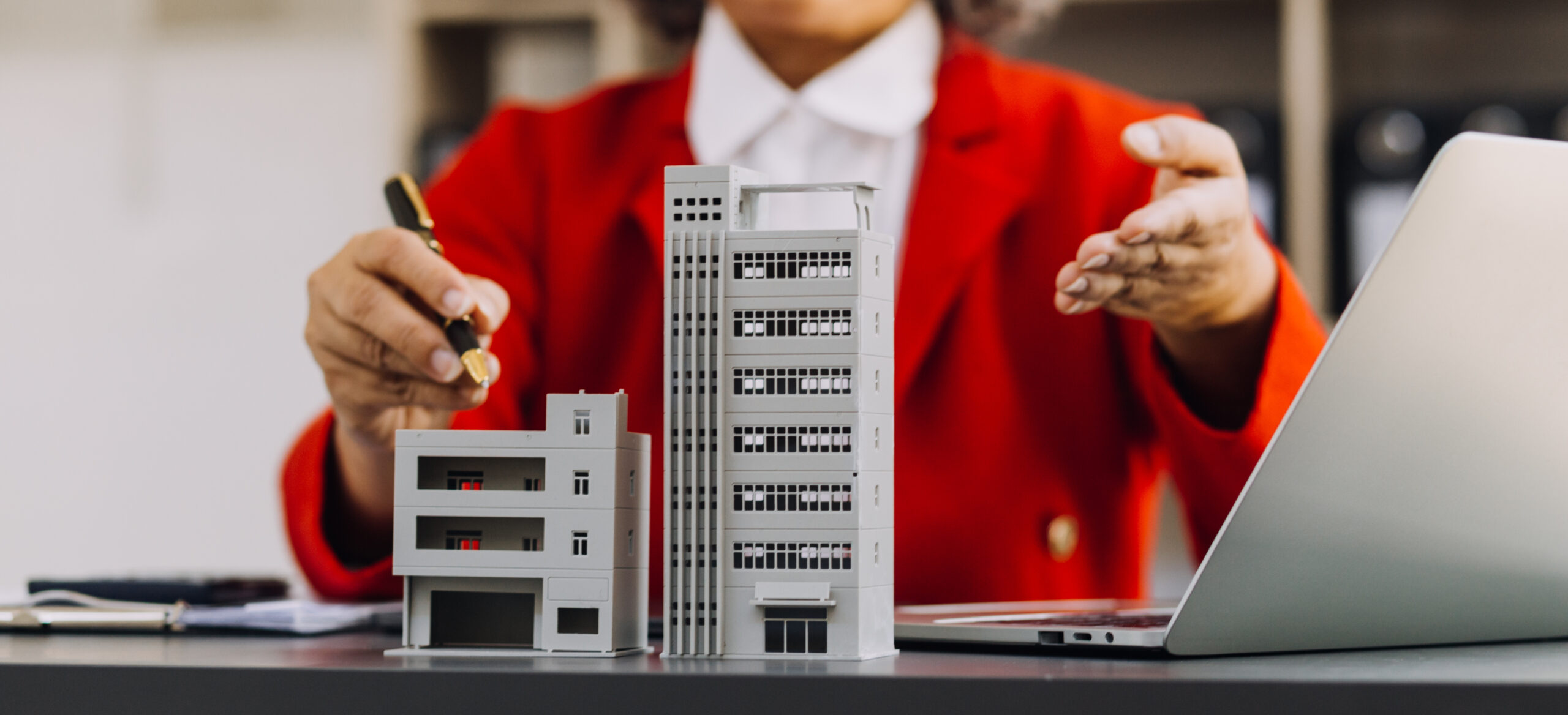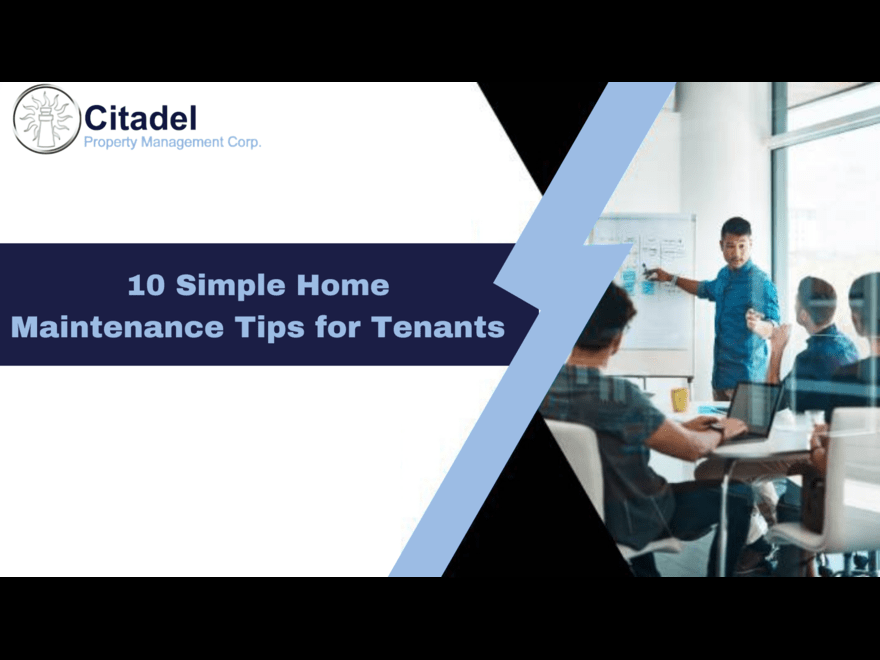Maintaining your rental property is a crucial responsibility for tenants, ensuring a comfortable living environment and fostering a positive relationship with your landlord. While major repairs are typically the landlord’s responsibility, proactive maintenance on your part can prevent minor issues from escalating into bigger problems.
Here are 10 Simple Maintenance Tips for Tenants: Keeping Your Rental in Top Shape
-
Prevent Clogged Drains:
- Avoid pouring grease or oil down the drain.
- Use drain guards in the kitchen sink and bathtub to catch hair and debris.
- Regularly clean drains with baking soda, vinegar, or a commercial drain cleaner following label instructions.
-
Address Leaks Promptly:
- Report any leaks, no matter how small, to your landlord immediately.
- Place a bucket or pan under the leak to catch dripping water and minimize damage.
- Avoid using the leaking faucet or appliance until it’s repaired.
-
Change Air Filters Regularly:
- Replace air filters in your heating and cooling system every 1-3 months, depending on usage and recommendations in your lease agreement.
- Clean any vents and grilles regularly to ensure proper airflow.
- Changing air filters improves air quality, reduces energy consumption, and extends the lifespan of your HVAC system.
-
Be Mindful of Garbage Disposal Usage:
- Don’t put hard objects, grease, or fibrous materials like coffee grounds or eggshells down the disposal.
- Grind food items in small batches and run cold water while using the disposal.
- Avoid using harsh chemicals or drain cleaners in the disposal.
-
Take Care of Appliances:
- Clean appliances regularly according to the manufacturer’s instructions.
- Avoid overloading the washing machine or dishwasher.
- Unplug appliances when not in use to save energy and prevent electrical issues.
-
Preventative Maintenance for Plumbing:
- Run the garbage disposal and flush toilets regularly to prevent clogs.
- Don’t flush anything other than toilet paper and waste down the toilet.
- Report any unusual water pressure changes or slow drains to your landlord.
-
Report Electrical Issues:
- Don’t overload electrical outlets or extension cords.
- Report flickering lights, buzzing sounds, or sparks from outlets to your landlord immediately.
- Unplug unused electronics to save energy and prevent potential fire hazards.
-
Be Mindful of Smoke and Carbon Monoxide Detectors:
- Test smoke and carbon monoxide detectors monthly and replace batteries as needed.
- Never remove the batteries or disable these life-saving devices.
- Report any malfunctioning detectors to your landlord immediately.
-
Maintain Cleanliness and Proper Ventilation:
- Regularly clean your living space to prevent dust buildup and potential pest infestations.
- Use exhaust fans in the kitchen and bathroom when cooking or showering to prevent moisture buildup and potential mold growth.
- Open windows regularly for fresh air circulation, especially during cooking or cleaning.
-
Communicate Effectively with Your Landlord:
- Report any maintenance issues to your landlord promptly, regardless of how minor they seem.
- Maintain clear communication regarding repairs and scheduled maintenance visits.
- Follow any specific maintenance tips for tenants provided by your landlord in your lease agreement.
Additional Resources and Deeper Dives:
To help you easily track your maintenance responsibilities, here’s a downloadable checklist you can print or save to your device:

Specific Instructions for Common Maintenance Issues:
Clogged Drain:
- Materials: Baking soda, vinegar, boiling water, plunger (optional)
- Steps:
- Pour 1/2 cup baking soda down the drain.
- Follow with 1 cup of white vinegar.
- The mixture will fizz and bubble – this is normal. Let it sit for 15-30 minutes.
- Flush with hot water for several minutes.
- If the clog persists, use a plunger or contact your landlord.
Leaking Faucet:
- Materials: Adjustable wrench, replacement faucet washer (if needed)
- Steps:
- Turn off the water supply valve under the sink.
- Use the wrench to loosen the nut holding the faucet handle in place.
- Replace the worn-out washer with a new one of the same size.
- Tighten the nut and turn on the water supply valve to check for leaks.
- If the leak persists, contact your landlord for further assistance.
Changing Air Filter:
- Materials: Replacement air filter (size and type specific to your HVAC system)
- Steps:
- Locate the air filter compartment, typically near the thermostat or furnace.
- Slide out the old filter and compare it to the new one to ensure they are the same size.
- Insert the new filter with the airflow arrows pointing in the correct direction.
- Mark the filter replacement date on the filter itself or your calendar for future reference.
Remember: Always refer to your lease agreement or consult with your landlord before attempting any repairs that are beyond your comfort level or expertise. Their guidance can ensure proper procedures are followed to avoid further complications or potential damage to the property.
By following these additional resources and practicing proactive maintenance tips for tenants, you can fulfill your responsibilities as a tenant, contribute to a well-maintained living environment, and foster a positive relationship with your landlord.
FAQs:
Q: Who is responsible for major repairs in a rental property?
A: Typically, the landlord is responsible for major repairs related to the structure, plumbing, electrical systems, and appliances of the rental property, as outlined in your lease agreement.
Q: What happens if I neglect basic maintenance and damage the property?
A: As a tenant, you have a responsibility to maintain the property in a clean and habitable condition. Failing to do so and causing damage due to neglect could lead to deductions from your security deposit or even potential legal action from your landlord.
Q: How can I stay informed about my maintenance responsibilities as a tenant?
A: Carefully review your lease agreement, which typically outlines your responsibilities regarding maintenance and repairs. You can also consult with your landlord if you have any questions or require clarification.
Remember: By following these simple maintenance tips for tenants and fostering clear communication with your landlord, you can contribute to a well-maintained rental property, enhance your living experience, and potentially avoid unnecessary repair costs or inconveniences.


